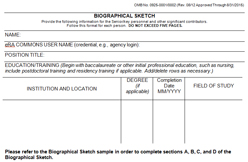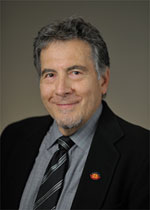A major overhaul of how we educate graduate students in biomedical research is long overdue.
Science has changed dramatically over the past three decades. The amount of information available about biological systems has grown exponentially. New methods allow us to examine the inner workings of cells with unprecedented resolution and to generate expansive datasets describing the expression of every mRNA or metabolite in a system. Biomedical research is becoming increasingly interdisciplinary and collaborative, and the questions we seek to answer are more and more complex. Finally, as the scientific enterprise has expanded, Ph.D.s have pursued increasingly diverse careers in the research and development, education and related sectors.
Despite these major changes, we educate Ph.D. students in biomedical research in essentially the same way as we did 25 or more years ago. As Alan Leshner put it in a recent editorial in Science magazine, “It is time for the scientific and education communities to take a more fundamental look at how graduate education in science is structured and consider, given the current environment, whether a major reconfiguration of the entire system is needed.”
Problems related to the reproducibility and rigor of scientific studies are likely driven in part by the inadequacies of an outdated system for educating our trainees. When nearly any student can sequence hundreds of millions of bases of DNA in a few days, does it make sense that all of our students are not given a significant amount of training in quantitative and computational analyses? And as we delve into more complex biological systems, shouldn’t students be receiving in-depth training in rigorous experimental design and data interpretation before they embark on their thesis work?
Continue reading “Catalyzing the Modernization of Graduate Education”



 Clifton “Clif” Poodry, Ph.D., director of the NIGMS Division of Training, Workforce Development, and Diversity, retired earlier this month. Although he’s left federal service, Clif is continuing to pursue his long-held interest in improving science education as a senior fellow at the Howard Hughes Medical Institute.
Clifton “Clif” Poodry, Ph.D., director of the NIGMS Division of Training, Workforce Development, and Diversity, retired earlier this month. Although he’s left federal service, Clif is continuing to pursue his long-held interest in improving science education as a senior fellow at the Howard Hughes Medical Institute.